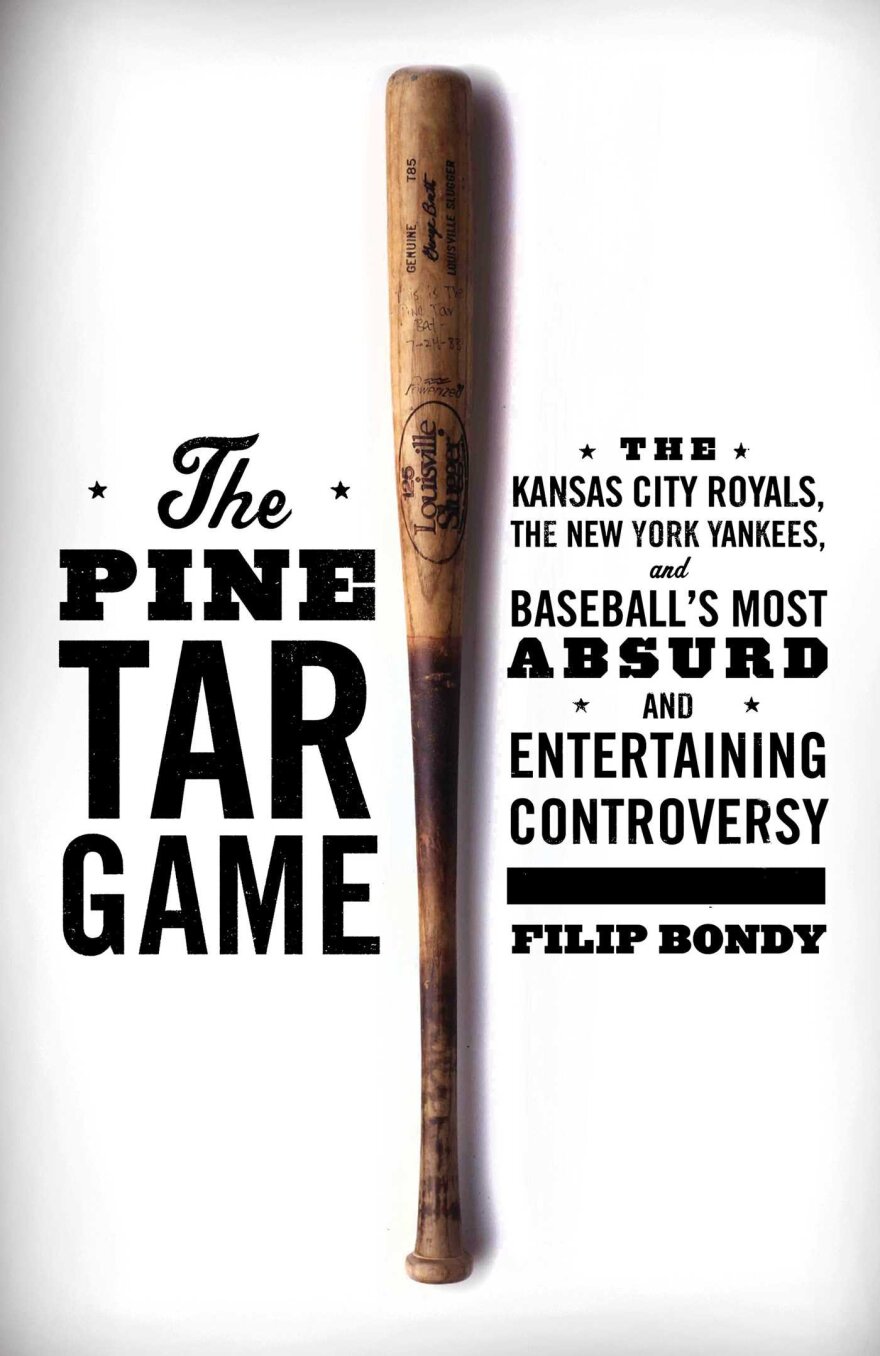Only July 24, 1983, the New York Yankees and Kansas City Royals played what has become known as the pine tar game. Playing at Yankee Stadium, the Royals were behind when George Brett hit a two-run home run. Or thought he did.
In 1983, the New York Yankees and Kansas City Royals were engaged in a fierce rivalry that culminated in the now infamous Pine Tar Game.
Author Filip Bondy chronicles the story in a new book titled, appropriately enough, The Pine Tar Game. The contrast between the teams in 1983 could not have been more pronounced.

“They really did hate each other. This was an intense rivalry,” Bondy says. “You had the staid, reliable model expansion franchise in the Kansas City Royals at the time, owned by the steady philanthropist/entrepreneur Ewing Kauffman, who was very careful in what he said and what he did. On the other hand, you had the Yankees, owned by the rather insane George Steinbrenner and his rather insane manager Billy Martin, who could do anything at any moment.”
Yankees owner George Steinbrenner is long remembered for his mercurial nature both on and off the field, but Bondy uses another word to describe him.
“If I had to describe Steinbrenner in one word it would probably be manipulative,” Bondy says. “He was manipulative toward his employees and he was also very manipulative toward us—toward the media. If I wrote a story or somebody wrote a story that was negative about George he would call up our rival the next day and give him an exclusive about some trade or some free agent signing that he was about to make.”
At the core of Bondy’s book is, of course, an obscure rule about the use of pine tar. Many batters, the Royals' George Brett included, used pine tar for a better grip.
Throughout the 1983 season there were rumors that Brett was using an excessive amount of pine tar to help his grip.
At the July 24 game, Billy Martin approached umpire Tim McClelland and asked that Brett’s bat be examined. McClelland determined that the amount of pine tar on the bat was in excess of regulation.
In the end, the whole rule about pine tar in the first place comes down to baseball-related eccentricity and Minnesota Twins owner Calvin Griffith, who found that too many of his baseballs were being tossed out because of excessive pine tar.
“He did not want to spend money on baseballs and the pine tar was tarring up his baseballs and forcing them to be thrown out earlier than he wished. So he personally wanted to put in this pine tar rule and it did get into the official rule book that pine tar could not go over eighteen inches beyond the handle of the bat,” Bondy notes. “So once you had that then there were rules about what happens to an illegally batted ball and what happens to the batter who had hit an illegally batted ball. There were all these separate rules to interpret. The umpires on the scene interpreted them the way that they were written, I guess, literally.”
Then there was George Brett, the player at the heart of the controversy, whose larger-than-life character erupted on the field when the umpires made the ruling against him.
Like many greats, Brett had his demons.
“He was a guy who grew up with a bit of chip on his shoulder because his father basically saw him as the slacker in the family,” Bondy says. “It’s the opposite of what we usually get, the Mickey Mantles and Jimmy Piersalls of the world whose fathers pushed them and pushed them. Well, in George’s case, his father saw Ken Brett, his brother, as the golden boy in the family. George was seen as a failure. And then, on top of that, he hated the Yankees. There was a real, real resentment between those two teams. And then this happens. He lost it. He completely lost it.”
After a lengthy hearing over the pine tar ruling, the game was resumed on August 18, 1983, and saw the Royals claim a 5-4 victory over the Yankees. Bondy, who had graduated from a New Jersey newspaper to a New York City one in that time frame never forgot the game, which inspired him to write this new book.
“It was fun from the beginning. I mean, these are the stories we dream about," he says. "I don’t have a great memory for your typical 3-1 or 5-2 game or even an outstanding pitching performance. But I do have a very good memory for these kind of events.”
Filip Bondy’s latest book The Pine Tar Game: The Kansas City Royals, the New York Yankees, and Baseball's Most Absurd and Entertaining Controversy is out now. He appears at Watermark Books this evening.




